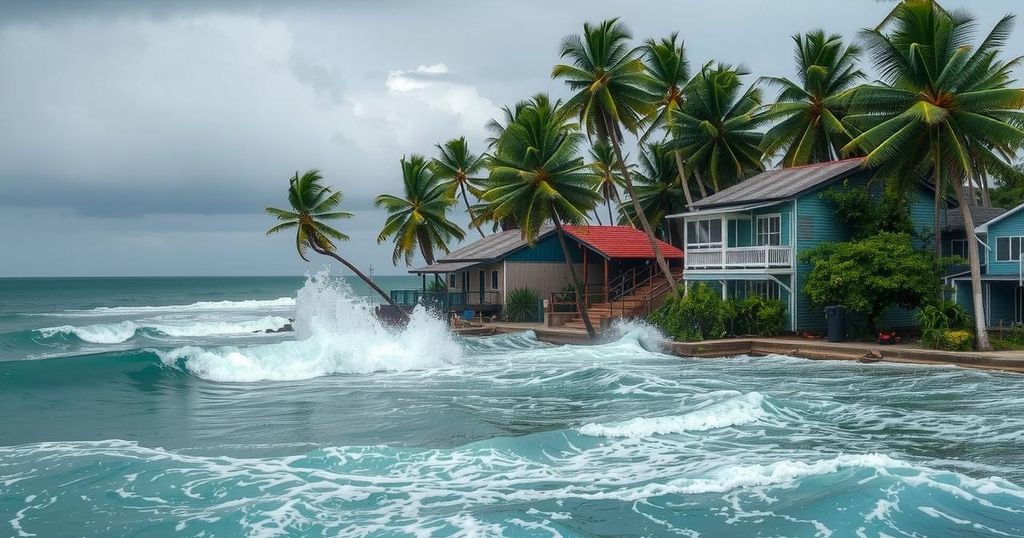On December 14, Tropical cyclone Chido devastated Mayotte with winds exceeding 200 km/h, causing significant destruction and loss of life. Unprecedented rainfall and high seas resulted in a national emergency, despite advanced warnings issued by Météo-France. The cyclone’s unusual trajectory raised questions regarding future climate effects in the region.
Tropical cyclone Chido struck Mayotte on December 14, unleashing devastating winds exceeding 200 km/h, with gusts surpassing 225 km/h. Characterized as the most powerful storm to impact the island in nearly a century, this cyclone also brought torrential rains, totaling 176 mm within a mere 12 hours, and dangerous wave heights reaching over 5 meters. The cyclone’s intensity was so great that it demolished some of the observational structures of Météo-France.
Mayotte, a small island in the Indian Ocean, faced unprecedented devastation from Tropical cyclone Chido, which highlighted the vulnerabilities of regions unaccustomed to severe weather events such as strong cyclones. This storm emerged in an era where climate change impacts are being scrutinized, though Météo-France indicated that the relationship between the storm’s behavior and climate change remains inconclusive at this time. The cyclone’s trajectory deviated from typical patterns, enhancing its impact on Mayotte while later making landfall in Mozambique.
In summary, Tropical cyclone Chido represents a critical event in the recent meteorological history of Mayotte, raising concerns regarding emergency preparedness and adaptive strategies in the context of climate change. Despite timely alerts from Météo-France, the island was ill-equipped for such a powerful storm, leading to significant loss of life and property. As the region anticipates future cyclone seasons, understanding Chido’s impacts will be crucial for improved resilience.
Original Source: wmo.int






